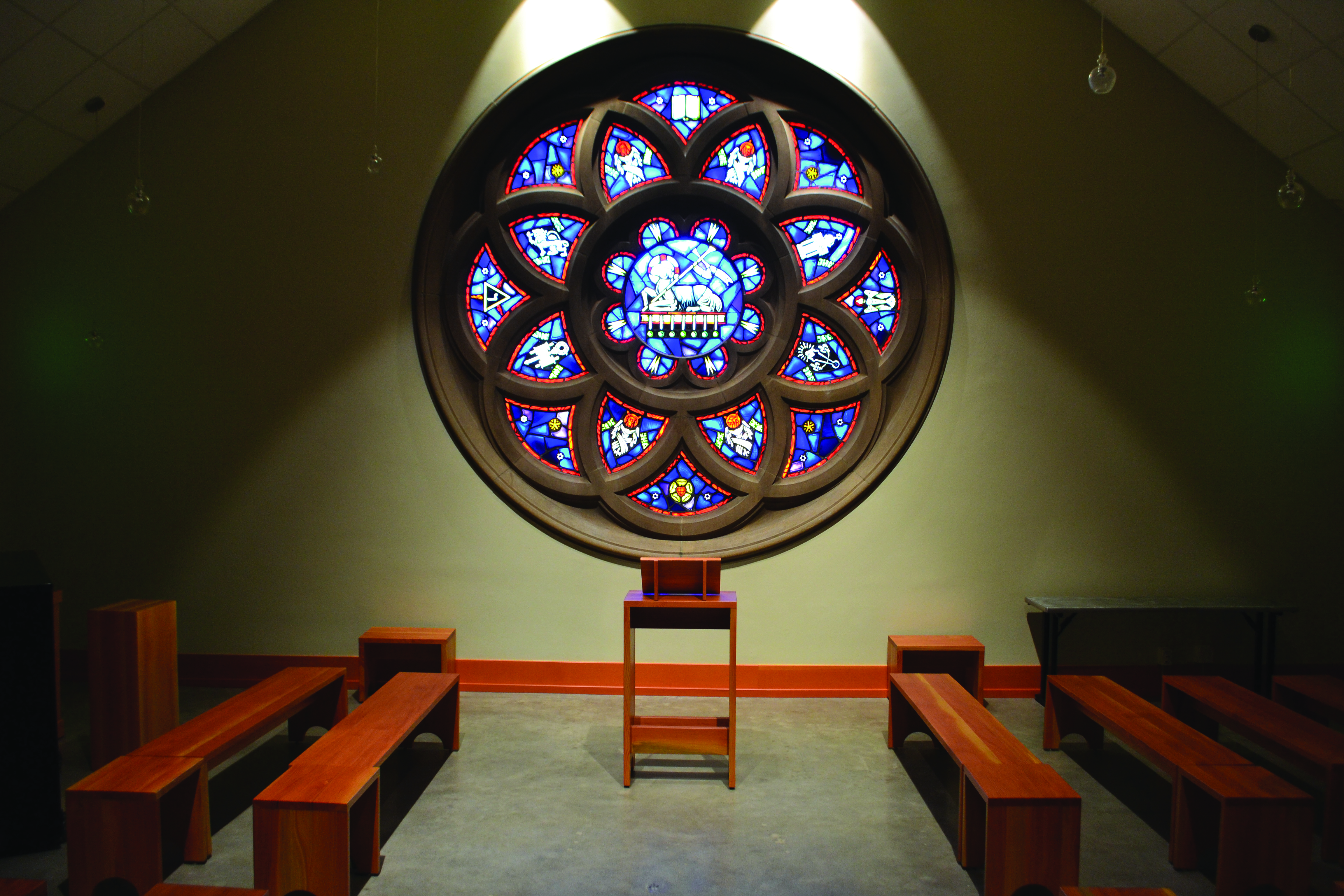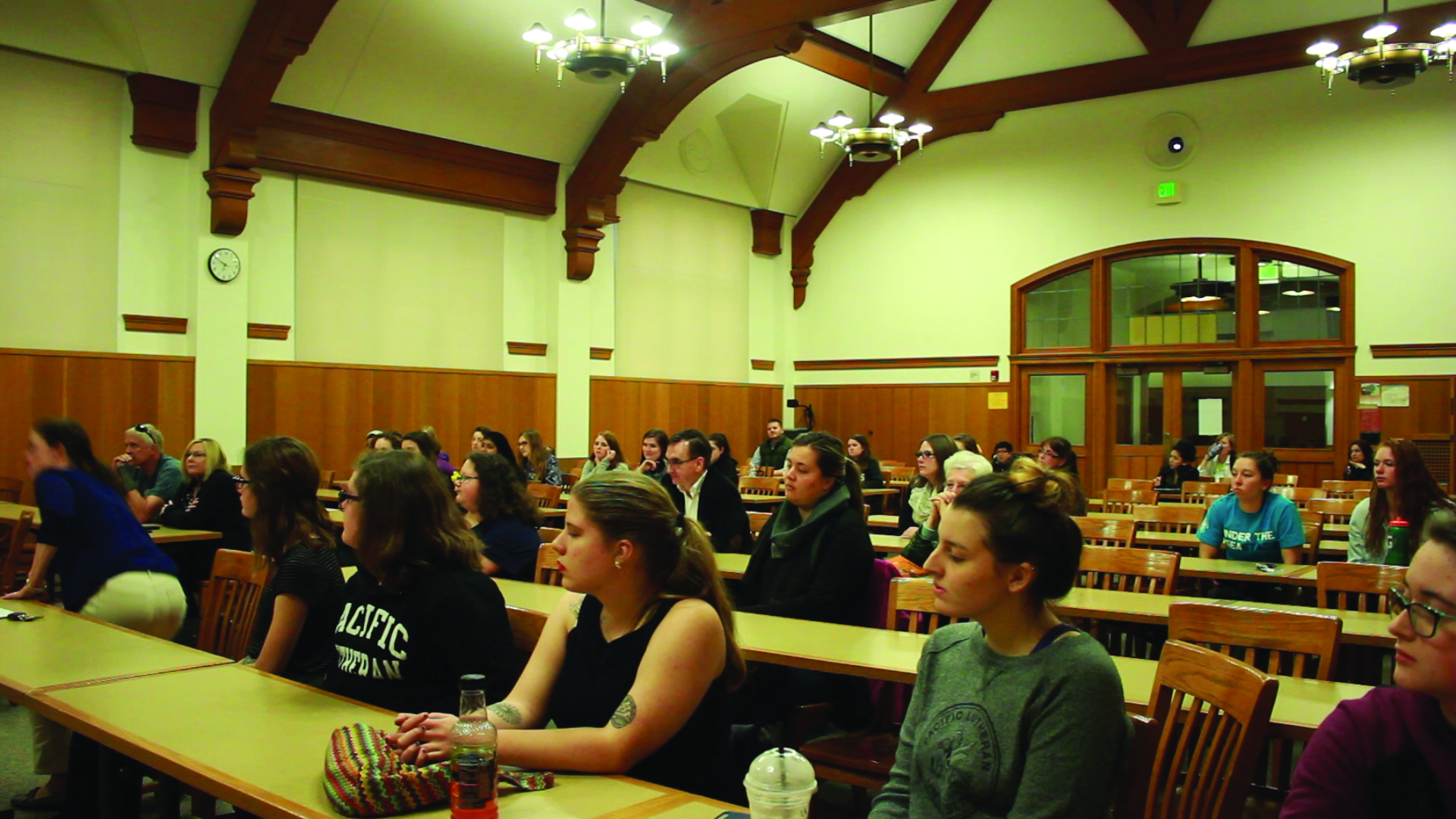PARIS FRANKLIN; Culture Editor; franklpm@plu.edu
Wang Center Global Ambassador Kaja Gjedle led this year’s annual Culture Shock Reflection Series. The event gave Lutes a unique opportunity to discuss their study away experiences during February and March.
Gjedle reinvented the annual series to be more accessible to students of all study away experiences.
Gjedle, a senior Global Studies major and has studied away seven times, including semesters in Oaxaca, Mexico and Geneva, Switzerland. It was important to her to be able to provide the experience for other students who have studied away.
“It really helped because I had just come back from Mexico and there was a lot of social justice issues to weigh through. I know that’s not true for everyone, but it helped me,” Gjedle said.
In the past, the program was not as effective, which may have been caused by the lack of student input in the planning process. “The idea behind the old ones was that they had somebody with a doctorate, a psychologist, come up with the questions and come up with the program,” Gjedle said.
“It was a five-week commitment where you met once a week for two hours and you really went in depth on kind of the challenges of coming back from studying away, different things that you noticed while away that was still troubling you or hearing about what other students had done while away.”
After noticing that this wasn’t an attractive option for all students, Gjedle said that she knew how to change the event for the better: “I was also discouraged that a lot of my friends couldn’t come to those events because it was such a big time commitment.”
When she was planning this year’s series, Gjedle shortened the sessions and chose to have each session function independently. “Ideally people could come to all three, but if they could only come to one or two, it wouldn’t be a problem. They would hopefully still get something out of it,” said Gjedle.
In order to facilitate conversation and make the sessions more fun, Gjedle added a new twist into the mix: Star Trek. “Pop culture can be used generally as a lens because it’s a product of society. Science fiction also invites this idea of looking at ourselves retrospectively, which is unique,” Gjedle said. “Star Trek has been a champion of diversity and it’s really all about travel and interacting with people who are different from yourself and how you deal with those differences.”
The episodes Gjedle chose to feature added connection back to PLU. “I started off with an episode of Star Trek Enterprise, and one of the main cast members of the Enterprise is a PLU alum,” said Gjedle, referencing Connor Trinneer. “That really drew my attention because I thought that was a really cool connection back to PLU and somebody who went beyond PLU but is still addressing a lot of PLU-related questions.”
Gjedle chose the episode “Cogenitor” to play at two of the sessions because it addresses a lot of broader human rights issues, especially those related to gender. She noted that gender “can seem like something quite simple, but it is actually quite complicated when you’re trying to navigate a whole new environment and it can cause culture shock again on both sides … I also used the gender-themed one because it was International Women’s Day, so I thought that fit rather well,” Gjedle added.
Along with examining issues that students may witness while studying away, Gjedle worked hard to ensure that students from all study away programs would be able to discuss issues seen in the Star Trek Episodes. “When I was trying to design this, I tried to make it clear that any study away experience is valid and it can impact you personally and academically in a variety of ways,” Gjedle said. “It can come from a January Term in Neah Bay or a semester course in Oaxaca.”
Gjedle pointed out that any experiences off-campus are able to provide students with new outlooks. “I always encourage students to study away for a semester because that’s where you really get more involved and integrated into a community. However, I think that if people can only do a short-term program, I think that they can have a really valuable experience there, as well,” Gjedle said.
“Something at the Wang Center that we really try to promote to people is that you can be immersed in another culture just within the state of Washington … So the Neah Bay J-term, for example, I mean that’s a whole other culture, a different worldview, a different language, a different traditional knowledge and skills that people get to learn,” Gjedle said. “It at least exposes them to a totally different way of thinking and I think that’s what is the most important.”
Gjedle encourages students to study away and reflect on those experiences. Star Trek is the lens that helped her understand issues of culture shock, and by creating a new version of the Wang Center Culture Shock Reflection Series, she was able to share those experiences and have meaningful conversations with other students returning from study away.
“I think that travel can bring out the best and worse within us and so I think it is extremely important to reflect on those experiences,” Gjedle said.
Already studied away? Look out for next year’s reflection series. Want to make a difference in the Wang Center Programming? Applications to be one of next year’s Global Ambassadors for the Wang Center are due April 17th.




















